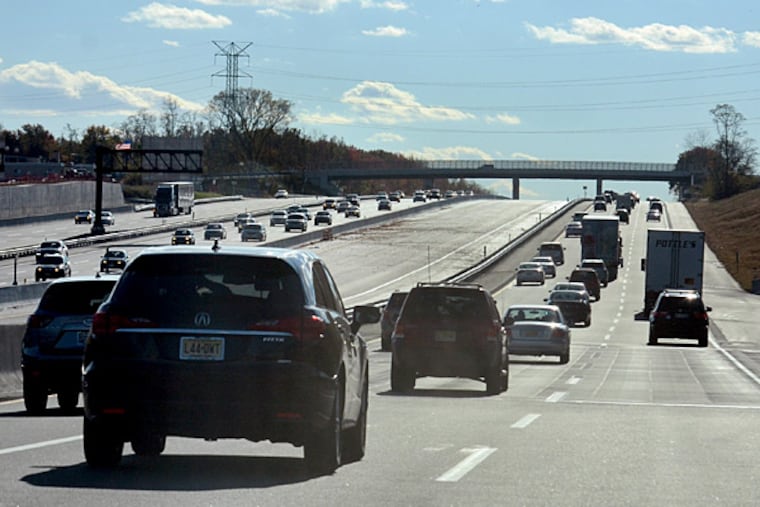Tap gas tax to fix roads
Now that millions of travelers have endured New Jersey's crumbling roads and shaky buses and trains to see loved ones over Thanksgiving, they might consider, perhaps profanely, how the state has failed to maintain these essential arteries by letting the Transportation Trust Fund run dry.

Now that millions of travelers have endured New Jersey's crumbling roads and shaky buses and trains to see loved ones over Thanksgiving, they might consider, perhaps profanely, how the state has failed to maintain these essential arteries by letting the Transportation Trust Fund run dry.
Gov. Christie has been a poor steward of the fund. It was created in the 1980s by Gov. Thomas H. Kean to keep the state's roads, bridges, and transit systems in good shape. Christie, however, while refusing to raise taxes, raided funds from a scrapped Hudson River commuter tunnel to pay transportation costs.
The governor raided other transportation funds to balance his budget. And when that wasn't enough, he piled on so much debt that by next year the transportation fund will be insolvent. Worse, the state could lose dollar-for-dollar matching funds from the federal government.
The fund needs about $2 billion a year to repair and improve highways and transit systems vital to the state's economy. But now, deteriorating bridges and pockmarked roads cost individuals, businesses, and local governments a collective $4.6 billion a year.
There are few choices but to raise the gasoline tax and devote other funds, such as savings from consolidating some transportation functions, to save the state's road and transit systems.
New Jersey should raise the gasoline tax, which, at 14.5 cents a gallon, is the second lowest in the nation after Alaska's. New Jersey's gas tax is about half of the national average of 31 cents per gallon.
With gas prices falling, commuters won't feel the pain as acutely as they would have a year ago. Also softening the blow is the fact that 30 percent of the tax would be paid by out-of-state motorists.
Assemblyman John Wisnewski (D., Middlesex), who chairs the transportation committee, introduced a bill to raise the gas tax by 25 cents. State Sen. Ray Lesniak (D., Union) has proffered a bill that would raise it 15 cents a gallon over three years.
There seems to be a growing consensus that the fund must be saved, with a coalition of business, labor, and local-government associations calling for a solution. Even Christie hinted he may not veto a gasoline tax. A good sign comes from his new transportation commissioner, Jamie Fox, who has said the state needs a "revenue enhancer" and that a Hudson River commuter tunnel should be built.
That's good. But this situation must stop politicians from treating transportation funding like it's a pothole. They fill it in, let it wear out and fill it in again, rather than repaving. This time, the state has to come up with a permanent solution and a dedicated funding source that can't be raided or choked with debt by a governor.